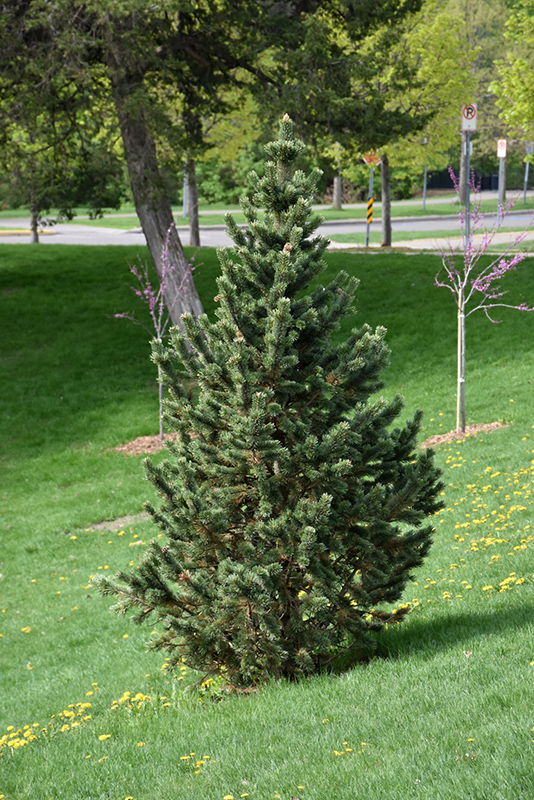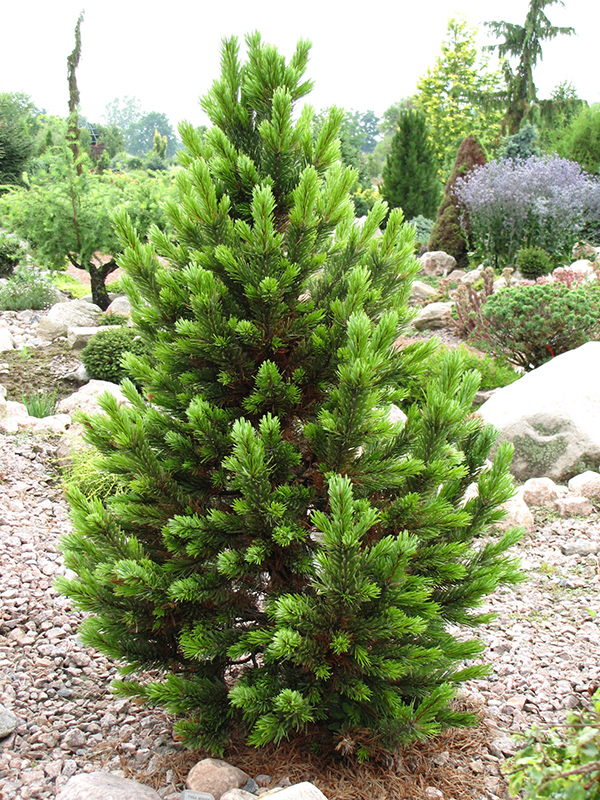Formal Form Bristlecone Pine
Pinus aristata 'Formal Form'
Height: 10 feet
Spread: 5 feet
Sunlight:
![]()
Hardiness Zone: 4a
Other Names: Pinus longaeva
Description:
This variety is a slow-growing, compact and dense with a narrow, uniform shape; bundled needles radiate from branches resembling bottle brushes; an excellent choice for rock gardens, or small landscape areas
Ornamental Features
Formal Form Bristlecone Pine is a dwarf conifer which is primarily valued in the landscape or garden for its distinctively pyramidal habit of growth. It has forest green foliage with hints of silvery blue which emerges light green in spring. The needles remain forest green throughout the winter.
Landscape Attributes
Formal Form Bristlecone Pine is a dense multi-stemmed evergreen shrub with a distinctive and refined pyramidal form. Its relatively fine texture sets it apart from other landscape plants with less refined foliage.
This is a relatively low maintenance shrub. When pruning is necessary, it is recommended to only trim back the new growth of the current season, other than to remove any dieback. It has no significant negative characteristics.
Formal Form Bristlecone Pine is recommended for the following landscape applications;
- Rock/Alpine Gardens
- General Garden Use
Planting & Growing
Formal Form Bristlecone Pine will grow to be about 10 feet tall at maturity, with a spread of 5 feet. It has a low canopy, and is suitable for planting under power lines. It grows at a slow rate, and under ideal conditions can be expected to live to a ripe old age of 300 years or more; think of this as a heritage shrub for future generations!
This shrub should only be grown in full sunlight. It prefers dry to average moisture levels with very well-drained soil, and will often die in standing water. It is considered to be drought-tolerant, and thus makes an ideal choice for xeriscaping or the moisture-conserving landscape. It is not particular as to soil type or pH. It is quite intolerant of urban pollution, therefore inner city or urban streetside plantings are best avoided. This is a selection of a native North American species.


